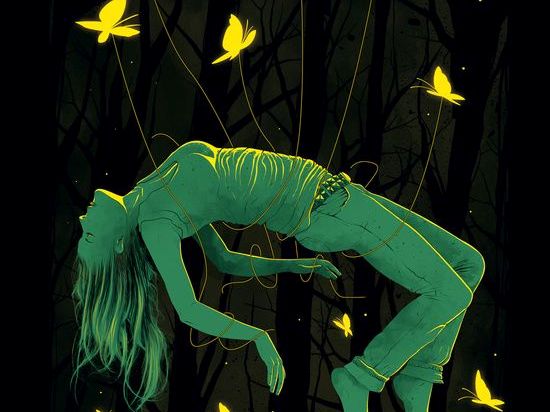When You Neglect Your Emotions

Many people disconnect from their emotions as a defense mechanism. They choose not to feel so they don’t have to suffer. They “freeze” their hearts to protect their souls from failure, disappointment, and wounds that won’t heal. However, this strategy actually just prevents them from participating in life in a healthy way.
Let’s analyze the purpose of our emotions for a moment. Every time an emotion is activated in the brain, it causes a reaction in the entire body. Disgust, for example, distances us from someone or something. Affection, hope, and passion connect us with each other and foster a dynamic where we can be more energetic and creative.
“Not loving for fear of suffering is like not living for fear of dying.”
-Ernesto Mallo-
However, people are wrong when they think that negative emotions have no end or that their only purpose is to make us unhappy. In reality, they allow us to adapt, learn, and advance throughout our lives. Fear and anxiety are survival mechanisms, warning signs that we have to know how to interpret so we can turn them into adaptive responses that guarantee our survival.
Modern man experiences a lot of fear. Despite the lack of predators and immediate physical danger, fear in this advanced world is much deeper and more complicated.
We’re talking about those inner fears and personal demons that paralyze us, suffocate us, and have multiple origins. When we’re unable to manage them, we often silently choose to emotionally disconnect.

Emotional disconnection: an all too common defense mechanism
Let’s imagine for a moment a fictional person named Miguel. This young man had an emotional past and experienced many failures. His level of disappointment is so deep that he’s started a new stage in his life where he reduces his degree of emotional engagement and expression to a minimum. He doesn’t want to suffer or be disappointed again.
He’s very in tune with the defense mechanisms he uses to achieve this goal. He’s begun a complex dissociation between his thoughts and emotions, to the point where he now “intellectualizes” everything that happens. In this way, he’s able to justify his emotional isolation at all times by saying things like: “I’m happy when I’m alone. I think love is a waste of time and that it would get in the way of my professional future.”
Miguel has developed an emotional disconnection to do away with the disappointments of his past, making it so that they don’t happen again. However, here’s the most revealing part: on top of putting up walls against a healthy participation in life, he’s sinking into the same emotional emptiness that he wanted to protect himself from.

The effects of emotional disconnection
If love is suffering for Miguel, closing the door to love often involves transferring this suffering to all other areas of life. Emotional disconnection is a relentless virus that slowly advances through and conquers multiple areas of life. People who experience it stop registering affection as meaningful.
Soon, he’ll be plagued by inexplicable frustration, sharp bitterness, moodiness, and emotional distress, which will sooner or later turn into physical pain, insomnia, illness, and depression.
Connecting with your emotions can be a lifesaver
In the beginning of this article, we talked about the weight of negative emotions on our lives. We defined them as survival mechanisms, but like we saw in the above example, many of us throw down the anchor to plunge these emotions into the void of indifference. Of oblivion.
“If you had not suffered as you have, there would be no depth to you as a human being, no humility, no compassion.”
-Eckhart Tolle-
Choosing not to feel so you don’t have to suffer doesn’t make any sense, because no matter what we tell ourselves, humans are not rational beings or robots. We’re an accumulation of incredible emotions that guide us and give us life to connect with one another, to learn after we fall, to cry our sorrows away, to laugh with happiness, and to hold our heads high after we overcome and learn from danger.

Neuroscience reminds us that the disconnection that results from negative emotions is neither useful nor healthy. Negative emotions like fear and disgust have a purpose, but they also give rise to something scientists define as “homeostatic impulse,” a fancy word for comfort zone. Human beings are designed to act, not to remain isolated on their islands of dissatisfaction.
When your inner balance is disturbed, it’s good to gather your energy, be creative, and be brave so you can recover your inner homeostasis. That way, you’ll find emotional fulfillment, that sweet spot where nothing hurts and nothing is missing. You’ll be able to let yourself feel again so you can first connect with yourself and then establish contact with the people around you.
In summary, the brain is an amazing social and emotional organ that needs connection in order to be okay, at peace, and in balance. So let’s take care of our emotions.
This text is provided for informational purposes only and does not replace consultation with a professional. If in doubt, consult your specialist.








